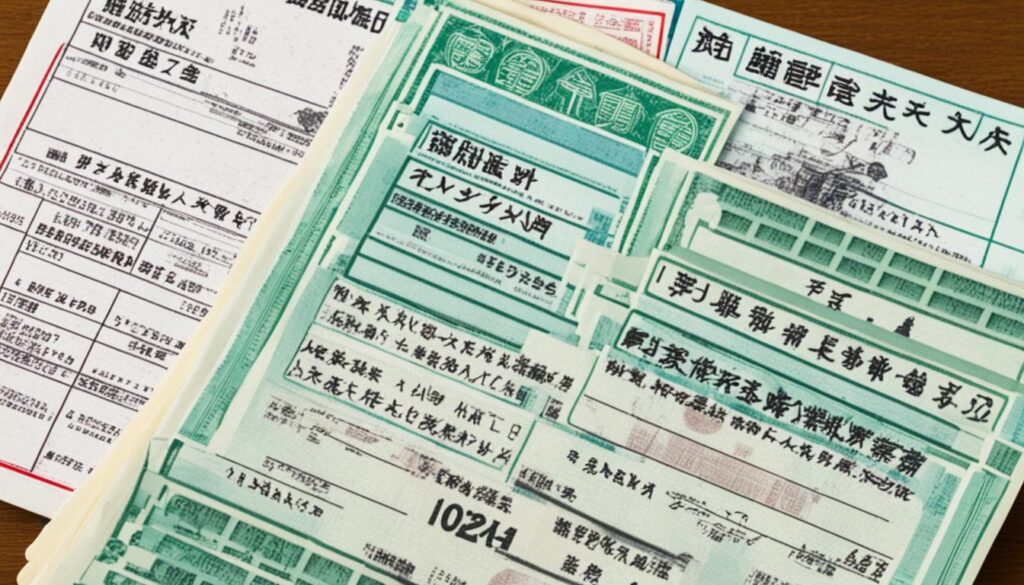Acquiring Japan citizenship is a significant milestone for many foreign residents, allowing individuals to fully integrate into Japanese society and enjoy the benefits of Japanese nationality. Understanding the legal frameworks and processes involved in the citizenship application Japan is essential for anyone looking to navigate this often complex terrain. Japan’s nationality laws are primarily outlined in the Japanese Nationality Act, which governs how one can become a Japanese citizen, encompassing various pathways such as naturalization, residency requirements, and the implications of citizenship in Japan.
Notably, Japan has one of the lowest naturalization rates among developed countries, with only around 1% of its foreign population acquiring Japanese nationality1. The naturalization process generally takes between 1-2 years, and it includes stringent requirements, such as demonstrating moral character and financial stability1. Given Japan’s well-defined nationality laws, this guide aims to provide a comprehensive understanding of acquiring citizenship in Japan, undertaking the necessary steps for a successful application.
Key Takeaways
- Japan has strict requirements for obtaining citizenship, including residency and language proficiency.
- Naturalization in Japan takes about 1-2 years, with a residency requirement of 5 years.
- Acquisition of Japan citizenship has seen lower rates compared to countries like Canada and Australia.
- Japan does not allow dual citizenship except in specific circumstances.
- Understanding the Japanese Nationality Act is crucial for a successful citizenship application.
Contact us if you are Interested in Buying Property Abroad!
Understanding Japan’s Nationality Laws
The framework of Japan’s nationality laws is primarily governed by the Japanese Nationality Act (Law No. 147 of 1950). This legislation outlines the conditions for acquiring Japanese nationality and stipulates the circumstances under which individuals may lose it. Nationality, in this context, is defined as the status of being a national of a specific country, with Japan’s criteria shaped by its historical and political landscape. The Act specifies three primary methods through which individuals can acquire nationality: birth, notification, and naturalization2.
The Japanese Nationality Act
According to the Nationality Act Japan, a child born to at least one Japanese parent is automatically considered a Japanese national at birth. For parents who are married and have children abroad, those children can also acquire Japanese nationality if there is an intention stated by either parent to retain their Japanese nationality2. Furthermore, individuals looking to acquire nationality through naturalization must meet specific conditions, including residing in Japan for a minimum of five years and demonstrating financial self-sufficiency3.
What is Nationality?
Nationality is a vital aspect of identity, defining an individual’s legal status within a country. In Japan, acquiring nationality involves adhering to the conditions set forth in the Nationality Act. Notably, Japanese law mandates that individuals who voluntarily obtain a foreign nationality will lose their Japanese citizenship3. Citizens of Japan enjoy various benefits, including extensive travel freedom, evidenced by the fact that in 2019, they had visa-free or visa on arrival access to 189 countries, which ranked the Japanese passport among the highest in the world3.
Eligibility for 日本国籍 (Japan Citizenship)
Understanding the pathways to obtain Japan citizenship is crucial for those considering a move to this vibrant country. The Japan citizenship eligibility criteria revolve around three primary avenues: citizenship by birth, acquisition through notification, and naturalization Japan.
Acquisition through Birth
Children can acquire citizenship by birth if at least one parent is a Japanese citizen. Furthermore, children born in Japan to parents of unknown nationality are also granted Japanese nationality, ensuring every child has a path to citizenship by birth regardless of their parental status.
Acquisition through Notification
This pathway allows individuals who have previously lost their Japanese nationality to regain it. Parents, both holding Japanese nationality, can notify the Minister of Justice to reestablish their child’s citizenship status. The process provides an essential bridge for families reconnecting with their Japanese heritage.
Acquisition through Naturalization
For those pursuing citizenship through naturalization, specific requirements must be met. Applicants typically need to have resided in Japan for 3 to 5 years depending on their situation, demonstrating a commitment to living in the country4. Alongside residence, proof of financial self-sufficiency as well as moral character is necessary. Additionally, individuals are required to be prepared to renounce their previous nationality, as Japanese law does not permit dual citizenship. This aspect is particularly important as individuals under the age of 22 must choose between retaining their U.S. citizenship or adopting Japanese nationality4. The application process for naturalization involves submitting essential documents, including a completed application form, financial details, and written explanations of the intent to naturalize4.
Japan Citizenship Process

The Japanese citizenship process for individuals seeking naturalization involves several precise steps and critical documentation to ensure a successful application. Understanding the requirements can significantly aid candidates aiming to secure their status as Japanese citizens.
Steps to Apply for Naturalization
The naturalization application Japan requires you to follow an organized process. Below are the main steps involved:
- Initial consultation at the Citizenship Division, where applicants discuss their eligibility and intentions.
- Collection of necessary documentation for citizenship, which includes personal information, proof of residence, and financial statements.
- Submission of the application in person, followed by a potential interview that may occur several months later.
- Awaiting approval from the Minister of Justice, which will be communicated through the Official Gazette.
Key Documentation Required
The documentation for citizenship should be meticulously prepared to avoid delays. Essential documents include:
- Filled application form with a passport photo.
- Identification documents and residence certificates.
- Proof of financial stability, such as income tax returns or bank statements.
- A written statement in Japanese detailing the reason for seeking citizenship.
- Proof of relationship to any Japanese relatives, if applicable.
For more detailed guidance on the Japanese citizenship process, it is beneficial to consult legal professionals who specialize in immigration law.
Permanent Residency in Japan

Acquiring permanent residency in Japan is a significant milestone for many expatriates. This status allows foreign nationals to reside in the country indefinitely without the hassle of renewing their visa. There are several pathways to permanent residency that cater to different situations and qualifications.
Pathways to Permanent Residency
One common route to obtaining permanent residency is through employment. Expatriates holding a Highly Skilled Professional Visa can apply after three years of residence if they score between 70-80 points on the Point Evaluation Mechanism for Permanent Residency5. Additionally, spouses of Japanese citizens or permanent residents can apply after just one year of residence in Japan, provided they have been married for at least three years5. Children of Japanese citizens or permanent residents may qualify for permanent residency after one year as well5.
Expatriates who have contributed significantly to Japan can qualify after five years of residence, while those on other visa types typically need to reside for ten years continuously, including holding a Work Visa for a minimum of five consecutive years5. Financial prerequisites include demonstrating an annual income of approximately 3 million yen, which may vary based on dependencies6.
Contact us if you are Interested in Buying Property Abroad!
Benefits of Holding Permanent Residency
The benefits of permanent residency in Japan are diverse. Individuals can enjoy similar advantages as Japanese citizens, particularly in employment and residential flexibility without the continuous need for visa renewals6. Permanent residents only need to renew their residence card every seven years—a much simpler process compared to annual visa extensions6.
With permanent residency, individuals can work in any field without restrictions, including freelancing, providing greater flexibility in career opportunities6. Financially, securing personal loans, especially mortgages, becomes more accessible, facilitating greater stability in living arrangements6.
As prospective applicants, it is crucial to understand the eligibility requirements and ensure that all documentation is meticulously prepared, as this can affect the application process and approval. Comprehensive guides are available, such as those discussing the procedures for obtaining permanent residency in Japan.
Citizenship Requirements in Japan

Naturalization in Japan involves meeting specific citizenship requirements Japan that are essential for individuals seeking to become Japanese nationals. Understanding the naturalization conditions, as well as familiarizing oneself with the necessary documents for citizenship, greatly simplifies the process.
General Conditions for Naturalization
The path to attaining citizenship through naturalization in Japan is governed by several general conditions:
- Residency: A minimum of five years of continuous residency in Japan.
- Legal Age: Applicants must be at least 18 years old.
- Moral Character: A clean criminal record and good conduct are required.
- Financial Stability: Proof of financial independence or support from family members is necessary.
- Renunciation: Agreement to renounce all previous nationalities, as Japan’s laws prohibit dual citizenship.
Specific Document Requirements
Gathering the correct documents for citizenship is crucial. The following list outlines essential documentation needed for the application:
| Document Type | Description |
|---|---|
| Proof of Residence | Documents showing continuous residence, such as a residence card or rental agreement. |
| Identification Verification | A valid passport and any previous Japanese documentation must be provided. |
| Financial Documentation | Statements that illustrate employment status and monthly income should be included. |
| Criminal Record Check | A certificate proving no criminal history is mandatory. |
Dual Citizenship in Japan

Japan has strict regulations regarding dual citizenship, which is a significant aspect of nationality laws Japan. Unlike many other countries, Japan does not permit its citizens to hold multiple nationalities. Individuals who acquire a foreign nationality voluntarily are required to relinquish their Japanese citizenship, as stipulated by Japanese nationality laws. This policy impacts anyone considering naturalization in Japan, especially those who already possess another nationality or plan to acquire one. A surprising fact is that around 925,000 individuals potentially hold dual nationality in Japan, according to a 2018 estimate by the Justice Ministry7.
Understanding Dual Citizenship Laws
The implications of these nationality laws Japan are substantial for those who naturalize. For instance, individuals must choose one nationality before they reach twenty-two years of age or within two years after acquiring a second nationality obtained post-twenty. The age requirement underscores the importance of understanding the impact of naturalization on one’s previous nationality. Notably, Japan’s legal framework lacks a requirement for those with dual citizenship to formally renounce their nationality if they acquired it without choice, which further complicates the issue8.
Impact of Naturalization on Your Previous Nationality
Naturalization in Japan can lead to significant changes, especially for individuals with existing citizenship in countries that permit dual citizenship, such as the Philippines and South Korea. In 2020, only about 24% of countries worldwide maintained similar restrictions, suggesting that Japan’s laws are more stringent compared to a global trend of increasing acceptance of dual citizenship9. Approximately 25,000 Japanese individuals have renounced their citizenship since 1985 due to this provision, highlighting a tangible impact of the nationality laws on individual choices9. For further details, individuals are encouraged to reach out to local government offices or the appropriate embassies for guidance on navigating these complex laws regarding dual citizenship in Japan.
Conclusion
Acquiring Japan citizenship is an intricate journey, and this guide emphasizes the critical pathways and requirements involved in the process. With an understanding of the Japanese Nationality Act and pertinent laws, prospective applicants can proficiently navigate the complex application landscape. *Japan citizenship summary* serves not only to illuminate the legalities but to empower individuals seeking a new beginning by becoming a part of this culturally rich country.
The article has also addressed various factors that influence this decision, including the emotional and socio-economic implications of naturalization. As individuals assess their motivations for applying, they can appreciate the life-changing benefits, including travel privileges and enhanced employment opportunities. Understanding these advantages is key in making informed decisions about *navigating Japanese nationality law*.
In conclusion, the complexities surrounding Japan’s citizenship policies reflect a broader narrative about identity and belonging in a globalized world. The insights garnered here aim to assist those contemplating this significant step, ensuring they are well-prepared and informed on their path to citizenship in Japan.Learn more about dual citizenship in and how it can impact your journey101112.
Contact us if you are Interested in Buying Property Abroad!
FAQ
What are the primary pathways to acquire Japanese nationality?
What is the process for applying for naturalization in Japan?
What are the general conditions needed for naturalization in Japan?
Can I hold dual citizenship in Japan?
What documents are required for the citizenship application process?
What are the benefits of obtaining permanent residency in Japan?
How can I obtain permanent residency in Japan?
What does the Japanese Nationality Act define regarding nationality?
What implications does acquiring Japanese citizenship have?
Source Links
- https://www.investasian.com/lifestyle/how-to-get-japanese-citizenship/
- https://www.moj.go.jp/EN/MINJI/minji78.html
- https://en.wikipedia.org/wiki/Japanese_nationality_law
- https://wise.com/us/blog/japanese-citizenship-guide
- https://visaguide.world/asia/japan-visa/permanent-residency/
- https://japan-dev.com/blog/how-to-get-permanent-residence-in-japan
- https://www.japantimes.co.jp/news/2023/10/19/japan/crime-legal/japan-dual-nationality-problem/
- https://www.moj.go.jp/ENGLISH/information/tcon-01.html
- https://www.asahi.com/ajw/articles/14846327
- https://journals.openedition.org/remi/23236?lang=en
- https://cadmus.eui.eu/bitstream/handle/1814/43625/EudoCit_2016_11Japan .pdf?sequence=1
- https://www.turning-japanese.info/2021/06/why-did-i-decide-to-apply-for-japanese.html

Comments